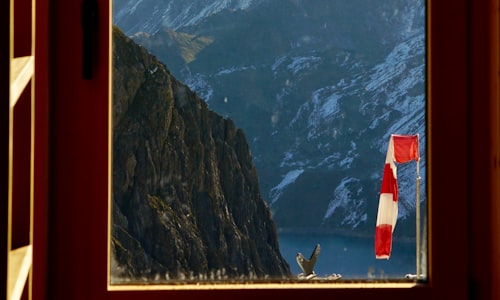Early 1900s facts
While investigating facts about Early 1900s, I found out little known, but curios details like:
The Japanese usually leave out most of their history from the early 1900s to WW2 from their high school curriculum.
In the early 1900s, women used hatpins to fend off sexual harassers in the streets. These pins were so effective in fending off assaulters that legislation was proposed to curb these “accessories to assault.” Men would often come away with wounds that were “not serious, but very painful.”
In my opinion, it is useful to put together a list of the most interesting details from trusted sources that I've come across. Here are 50 of the best facts about Early 1900s I managed to collect.
-
In the early 1900s, a group of U.S. government scientists started a private dinner club, in which they only ate poisonous food. They documented their illnesses in order to convince Congress to pass food safety laws. They were called "The Poison Squad."
-
In the early 1900s Wagner von Jauregg treated syphilis patients with malaria (winning the Nobel Prize). The patients developed malaria, causing a severe fever and killed the syphilis bacteria. Then given the malaria drug quinine and cured. This was used until the development of penicillin
-
In the early 1900s, Dolly Korschel kept a secret lover in her attic for years, had the lover kill her husband after a fight, continued keeping the lover in her attic, and was charged with murder 8 years later but set free because there was a 7-year statute of limitations on murders at the time.
-
In The Great Gatsby, Gatsby gave himself the name "Jay" because he believed it sounded upper-class and sophisticated, while in reality, the term "jay" was used as an insult during the early 1900s (when the novel took place) to describe an ignorant or inexperienced person.
-
In the early 1900s, 6-day long bicycle races were quite popular. The winner would be whoever rode the greatest distance in the 6days. They would get extremely little sleep and hallucinate on the track.
-
The city of Sochi, Russia erected a fish statue costing about 3800 USD in honor of *Gambusia affinis* (aka mosquito fish) since, after introducing the fish in the early 1900s, there have been no cases of malaria for over 60 years.
-
The term "junkie" comes from the fact that recreational heroin users in the early 1900s would collect and sell scrap metal to pay for their heroin.
-
Poor white southerners in American South, who were viewed in the North as lazy and stupid, were actually victim to a hookworm epidemic that turned them into listless imbeciles. Up to 40% were infected in the early 1900s.
-
In early 1900s NYC, it was acceptable for gangs of teenagers to swipe and stomp people's straw hats if worn past Sept 15th. One day in 1922, they started early. People fought back, and 8 days of riots ensued.

What is true about early 1900s?
You can easily fact check it by examining the linked well-known sources.
Blackcurrant cultivation was banned in the U.S. from the early 1900s until 2003. Less than 1% of Americans have tasted one.
Celery was a very popular food in the 1800s through early 1900s. It was the third most popular menu ingredient in New York City restaurants, behind coffee and tea. Celery cost more than caviar because it was so hard to cultivate in those days. - source
The deadliest disease outbreak in human history originated in the USA in the early 1900s and killed up to 100 million people worldwide. News of the outbreak went largely unreported due to the Sedition Act and an effort to “keep up morale.” - source
Eugene Debs was a socialist from Indiana who ran for President five times during the early 1900s. He was found guilty of sedition and sentenced to ten years in prison for speaking out against the Wilson administration and the World War I draft.
The Nazi Salute is said to have originated from the Roman Empire, but no surviving Roman art or text describes the salute. 18th century French painters labeled the gesture as the "Roman Salute", and was adopted by European fascists in the early 1900s. - source
A dog named Jim was praised in an early 1900s postcard. "Ever ready to stand guard over the wagon, never willing to ride while the team is in motion; Jim is indeed a great dog."
Doctors in the early 1900s thought bicycles would turn women gay.
President Garfield's assassin bought the gun he thought would look the best in a museum.The revolver was recovered and even photographed by the Smithsonian in the early 1900s but has since been lost.
In the early 1900s, Celery was considered a delicacy and one of the most popular foods in America. Kalamazoo was the Celery capital of the world.
The stereotype of French people as wearing striped shirts and berets likely derives from the attire of Breton door-to-door onion salesmen in Britain from the early 1900s, these being the only contact most everyday British people had with people from France.
Early filmmakers in the 1900s, filmed movies in Hollywood because patents held by Thomas Edison couldn't be enforced there.